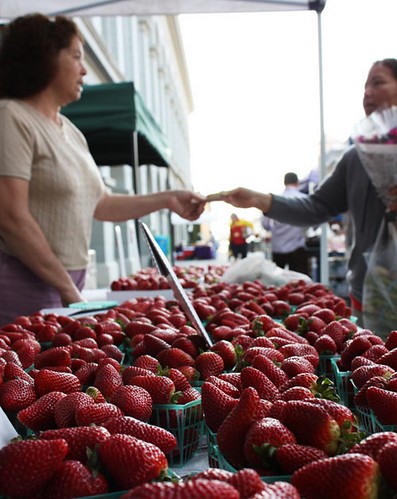
When I visit my local farmers market, I know that every peach, tomato, or strawberry I purchase helps local farmers pay their bills and support their families. Not only do I enjoy the health benefits and the wonderful flavors from fresh produce but I’m helping local farmers stay in business.
USDA’s latest National Farmers Market Manager Survey, published by the Agricultural Marketing Service in 2009, shows that sales at farmers markets in 2005 exceeded $1 billion. At the time, USDA counted about 4,300 farmers markets operating in the United States. Today there are 7,175 farmers markets listed in the USDA National Farmers Market Directory.
As the number of farmers markets grow across the nation so do their economic impact:
- In Vermont, approximately 80 farmers markets generated nearly $7 million in gross revenues during 2009.
- A 2008 report from Oklahoma noted that 21 surveyed farmers markets generated $3.3 million in gross revenues, and 113 full-time-equivalent jobs.
- In Washington State, farmers market sales rose from $32 million in 2009 to $39 million in 2010.
That’s a lot of peach, tomato and strawberry purchases.
Understanding the economic impact of farmers markets goes beyond just counting up sales dollars. Farmers markets have the potential to be significant economic drivers and job creators in their local communities. In Iowa, for example, the state’s farmers markets were responsible for an estimated $71 million in overall economic impact in 2009, including $59.4 million in direct and indirect sales. In addition, Iowa’s farmers markets were linked to the creation of374 direct jobs and more than 200 indirect jobs. Similarly, researchers at Mississippi State estimated that vendor income from 26 surveyed farmers markets in the Magnolia State had an economic impact in excess of $1.8 million primarily generated by associated increases in business expenditures, wages, and tax revenues.
So the next time you are at a farmers market, think of the economic investment you are making to the local farmers and community.



